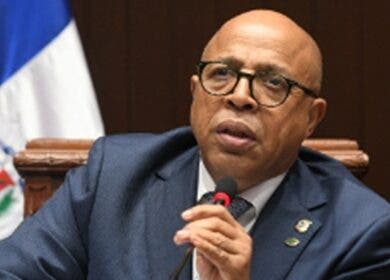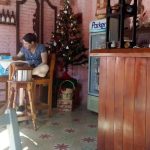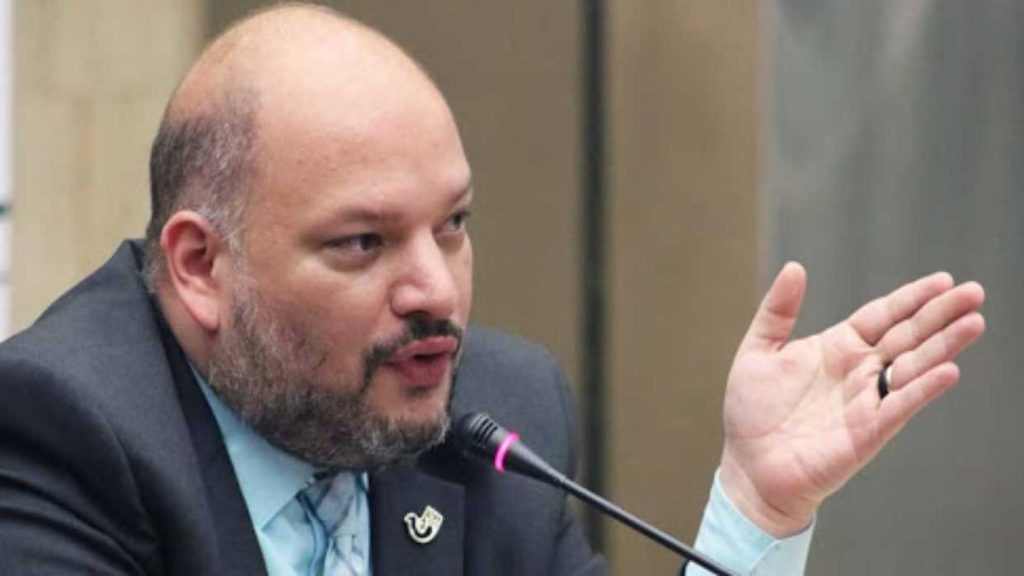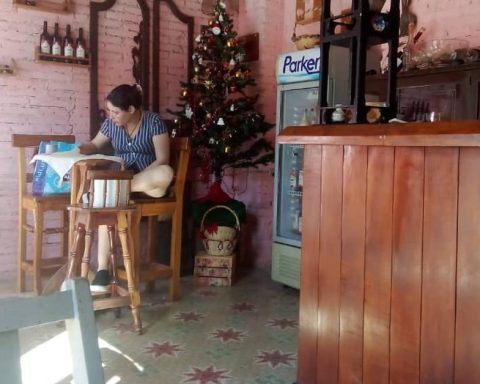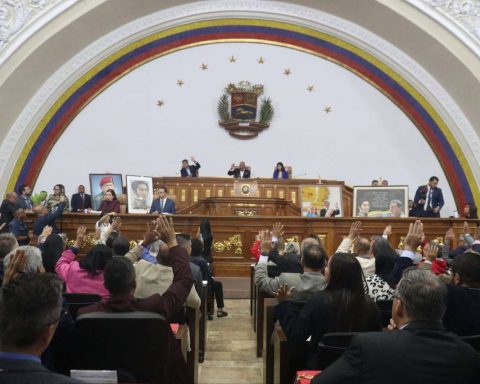While the deputies of the ruling party Modern Revolutionary Party (PRM) While the opposition is working to reach a consensus on the constitutional reform proposed by the Executive Branch, the opposition maintains its opposition to the project.
The President of the Chamber of Deputies, Alfredo Pachecoreported this Tuesday that the organization is working hard to ensure that the reform has the greatest possible consensus, not only within the PRM, but from all sectors.
He said he hoped that this week details will be provided regarding the progress of the talks being held with different sectors, inside and outside Congress, because the objective is for the project to have a broad social and political base.
You can read: After strike, ADP Santiago Suroeste and Minerd reach agreement
As for the reduction in the number of deputies in the reform, Pacheco resisted establishing a number, because doing so would limit dialogue, in one sense or another.
“We have been making highly qualified technical enquiries and on that basis we have been evaluating a number of possibilities to see how we can resolve this issue,” he said.
On his side, Beloved Diazspokesman for the PRM bloc of deputies, praised the debate created around the draft reform of the Magna Carta as positive, because that is how democracy works, while urging not to worry about dissent, basically, on the issue of the reduction in the number of deputies.
He said that consensus will prevail in the Chamber of Deputies, since only one of the four points of the reform has generated controversy.
He recalled that this is not the first time that a controversial bill has reached the lower house, so he must be prepared for initiatives that generate debates due to differences of opinion, because that is the home of democracy.
Meanwhile, Miguel Arredondoa deputy for San Pedro de Macorís for the PRM, estimated that despite the fact that there are points that not everyone likes, such as the reduction, a way out is being sought so that the country is the only winner.
The deputy Rafael Perez, of the People’s Force Party (FP), opposed the reduction of legislators within the constitutional reform project, stating that a deputy is a fundamental piece in his demarcation.
The legislator from Pedernales estimated that the reduction violates the citizen’s right to elect and be elected, in addition to the fact that a deputy is an entity that provides solutions to problems raised by the community.
“When we go to the provinces, we have concrete solutions for our citizens, from coffins to prescriptions and other situations that are impossible to reach at other government agencies,” he said.
On his side, Alcibiades Tavarezfrom the FP, in San Pedro de Macorís, rejected the reduction of enrollment in the lower house, considering that legislators carry out social work in their territories.
He defines it as an inconsistency to reduce by 53 sectoral deputies, however, there is an attempt to increase by 20 national ones who are nothing more than a spoils that are shared among the political parties.
“Now, territorial deputies like us have to deal with the problem, as the people say, by interacting with all the citizens of the districts we represent; therefore, what the Government is making in this regard is a trivial argument,” he said.
Opposition position
In order for the Constitution of the Republic to come into force, after the reform proposed by the Executive Branch, an approving referendum will be required in which the people can vote directly, concluded a group of constitutional lawyers, gathered in a panel organized by the Global Foundation for Democracy and Development (Funglode).
The panel, which was attended by the former President of the Republic and President of the entity, Leonel Fernández, brought together experts as guest panelists, such as Leyda Piña Medrano, Eduardo Jorge Prats, Jottin Cury, Manuel Fermin and Maribel Reyes.
The project, which declares the need to reform the Constitution in articles 81, 166, 167, 169, 171, 178, 179, 209, 268 and 274, seeks to unify the holding of presidential, congressional and municipal elections by modifying articles 209 and 274 of the Magna Carta.
The meeting on Monday was attended by Senators Felix Bautista, Omar Fernandez, Lia Diaz, Cristobal Castillo, Moses Ayala, Julito Fulcar, Ramon Rogelio Genao, Alexis Victoria Yeb, Antonio Taveras Guzman, Franklin Romero, Aneudy Ortiz, Eduard Espiritusanto, Pedro Tineo and Aracelis Villanueva, among other congressmen.
